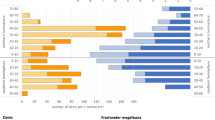Abstract
The development of hydro-electric projects of the upstream Mekong countries has been and will be inevitable and greatly impact on the downstream areas, in which the Mekong Delta is suffering a lot of losses, especially for Vietnam. The processes have been happening at the same time: the process of depleting water, for agriculture, for industry, for daily life, and people’s livelihoods. The processes, at the same time the effects that resonate with the process of climate change, cause great harm [1]. The drought has accelerated the acidification process, because the potential drought of acid sulfate soil (1,700,000 ha) will become intense, damaging the ecosystem and human livelihoods. The drought due to the construction of hydro-electric dams upstream (especially Lan Thuong River, China) makes the process of salinization with saline intrusion fierce (seawater 4 g/liter) [2]. Many, penetrating into the interior fields more than 100KM, the harm is extremely great. If they want to reduce the harm, the Mekong River Commission must ask the upstream countries to share it with the downstream.












Similar content being viewed by others
Data Availability
The data we obtained and used in the project are very transparent, very scientific, and very objective.
Code Availability
The software used is also very popular and reliable.
Change history
25 November 2021
A Correction to this paper has been published: https://doi.org/10.1007/s41101-021-00122-z
References
Vietnamese Documents
Le Huy B, Van Viet L, Hoan NX, (2016). Drought, Saline intrusion, Cuu Long River Delta. Ho Chi Minh City National University Publishing House
Le Huy B, (2000), Basic environment ecology (Publisher: HCMC National University).
Le Huy B, (2016), Climate change-adaptation for co-existence (Publisher: HCMC National University.
Le Huy B, (2015), Applied environmental ecology (Publisher: HCMC National University).
Le Huy B (1982). The problems of sulfate-acid soil in the Southern. HCMC General Publisher.
Le Huy B (2003). The problems of sulfate-acid soil in the Southern (repaired & added). HCMC National University Publisher.
Le Huy B.(1984). Evolution of ions Al3+, Fe2+ and SO42- in the country, Rice plants in Lang Bien alum-soils, Dong Thap Muoi, Mekong Delta. (Agricultural Science & Technics Magazine).
Le Huy B, Vo Hong Nhan, Ngo Ke Suong (1981). Fluctuations and effects of toxins on growth, physiological and biochemical properties of some varieties on alum-soil. (Science & Technics Magazine – Agricultural University 4).
Research Team, (2011), Basin development strategy based on integrated water resources management for the Mekong Down-Basin (Mekong International Commission).
Research Group, (2009), CC and SLR scenarios for Vietnam (Ministry of Resources and Environment). Southern Institute of Water Resources Science, Prediction Report on Saline Intrusion on coastal estuaries of Mekong Delta, and propose the solutions to drought
English documents
Freedman B, (1996), Environmental ecology, Academic Press
Odum EP, (1978), Ecology basis, University and pro-highschool Publisher
Di Castri F, Baker FWG, Hadley M (1984) Ecology in practice, the social response, Tycooly international Publishing Limited Dublin. Unesco, Paris
Parker SP, Corbitt RA, McGraw, Hill. INC. 1995, Environment Science and engineering.
Data References
MRE, (2008), Vietnam National scenario of climate change
Nguyen Q K, and collaborators, (2009), Assessment of hydrological changes of flows to down-stream according to up-stream development scenarios (Magazine of Hydrology and Environment)
Nguyen QK and collaborators, (2010), Changes of saline intrusion In the Mekong Delta according to the up-stream development scenarios, (Report on big dam association in 2010)
Author information
Authors and Affiliations
Contributions
Ba Le Huy is responsible for the methodology and is the corresponding author, Hoan Nguyen Xuan is responsible for data collection and data analysis, and Hung Le is the group’s secretary and is responsible English correction of the paper. All authors read and approved the final manuscript.
Corresponding author
Ethics declarations
Ethics Approval
We also confirm that there is always a very good cooperation and cooperation between the group and outside the group, and no inconsistencies occurred during or after the end of this study.
Consent to Participate
We, all members of the group of authors agreed to cooperate closely and complement each other on knowledge and work.
Conflict of Interest
The authors declare no competing interests.
Additional information
Publisher’s Note
Springer Nature remains neutral with regard to jurisdictional claims in published maps and institutional affiliations.
The original version of this article was revised: The original version of this article unfortunately contained incorrect article title.
Rights and permissions
About this article
Cite this article
Le Huy, B., Le, H. & Xuan, H.N. The Harmful Effect of the Hydro-Electric Dams Upstream of the Mekong River: Effect on the Ecosystems and Livelihoods of People in Mekong Delta, Vietnam. Water Conserv Sci Eng 7, 1–20 (2022). https://doi.org/10.1007/s41101-021-00112-1
Received:
Revised:
Accepted:
Published:
Issue Date:
DOI: https://doi.org/10.1007/s41101-021-00112-1




